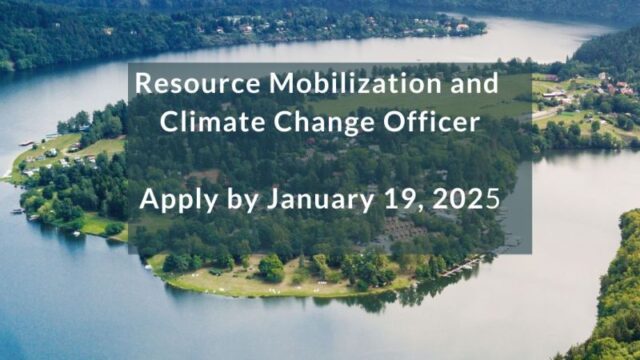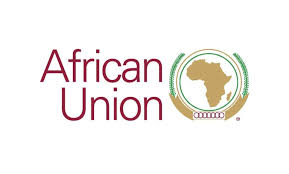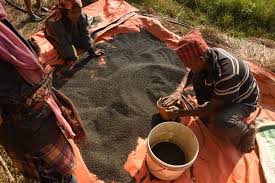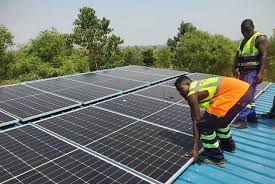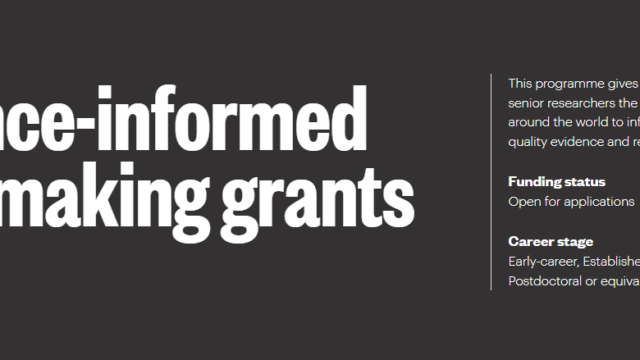GRANT : Apply for the Economics of Climate Risks, Natural Resource Use, and Environmental Change grants
SANDEE is calling for concept notes on environmental and resource economics topics related to the development of South Asia and the HKH region.
Focus Areas
ICIMOD seeks concept notes related to themes tied to its strategic work areas, including:
1. Economics of Climate and Environmental Risk Reduction – This includes understanding the economics of cryosphere changes and their associated risks, multi-hazard disaster risks, nature-based solutions for disaster risk reduction, disaster risk financing, sustainable river basin management (covering irrigation, drinking water, electricity generation, and both upstream and downstream water management), and addressing air pollution through data collection, monitoring, policies, solutions, and communication strategies.
2. Resilient Mountain Economies and Landscapes – This focuses on understanding the economics of sustainable mountain livelihoods, such as yak/chauri herding, rangeland management, climate-resilient agriculture, sustainable tourism, clean energy, and sustainable settlements. It also covers policies and institutions that support green, circular, and transformative livelihoods in response to climate and environmental change, along with economic valuation and incentive-based mechanisms to restore mountain ecosystems, address human-wildlife conflicts, and manage springsheds and wetlands.
3. Global Mechanisms and Policies – Research here explores the impact of global mechanisms and policies on local or national climate, environmental, and biodiversity objectives, as well as regional and transboundary risks. This includes topics like adaptation, mitigation, loss and damage, biodiversity conservation, sustainable use, access and benefit-sharing, Indigenous peoples, and the role of National Adaptation Programmes of Action (NAPAs), Nationally Determined Contributions (NDCs), and National Biodiversity Strategy and Action Plans (NBSAPs).
Themes
SANDEE’s research activities focus on three primary themes:
1. Ecosystem Management – Ecosystems offer various services, such as provisioning, regulating, supporting, and cultural. Human activities are accelerating the loss of these services, with significant implications for livelihoods and natural systems. Research under this theme includes:
- Understanding the socio-economic implications of ecosystem changes.
- Economic analysis of conserving ecosystems and their services, especially for marginalized communities.
- Investigating different institutional approaches to managing ecosystem services.
2. Economics of Climate Change – With climate change, South Asia is facing increased temperature variability, extreme weather events, and sea-level rise, impacting millions, particularly the poor. Research on climate change economics includes:
- Evaluating climate change impacts.
- Economic analysis of adaptation measures.
- Evaluating mitigation strategies, particularly those offering local co-benefits.
- Exploring institutional and policy needs for low-carbon growth and long-term climate resilience.
3. Policies and Programs for Greener Development – Governments in South Asia are implementing various regulations and policies to address environmental challenges. Research under this theme focuses on:
- Evaluating the impacts of environmental policies, regulations, and programs.
- Assessing the economic incentives tied to different regulatory and market mechanisms and their effectiveness in ensuring policy compliance.
Don't miss out on the application deadline which is 31 December 2024.
Additional Information
To prevent conflicts of interest, researchers whose relatives are employed by ICIMOD or are current consultants are not eligible for the research grant. Principal Investigators (PIs) must be junior to mid-career professionals employed at universities, research institutes, government agencies, or non-profit organizations in the region. Senior researchers, such as professors or directors, are not eligible for the grant.
Institutional affiliation of the PI is a requirement for receiving research support. When submitting a full proposal (though not for concept notes), a support letter from the PI's institution is needed. A due diligence review of the hosting institutions will also be conducted before grants are awarded.
Selection Criteria:
While concept notes can address a wide range of climate, environmental, natural resource, and development issues, SANDEE will prioritize proposals with a strong economic focus and methodology. Additionally, preference will be given to proposals that have the potential to produce impactful scientific publications and provide valuable insights for policymakers at the regional, national, provincial, or local levels.
GRANT : Apply for the Economics of Climate Risks, Natural Resource Use, and Environmental Change grants 0 reviews
Login to Write Your ReviewThere are no reviews yet.
